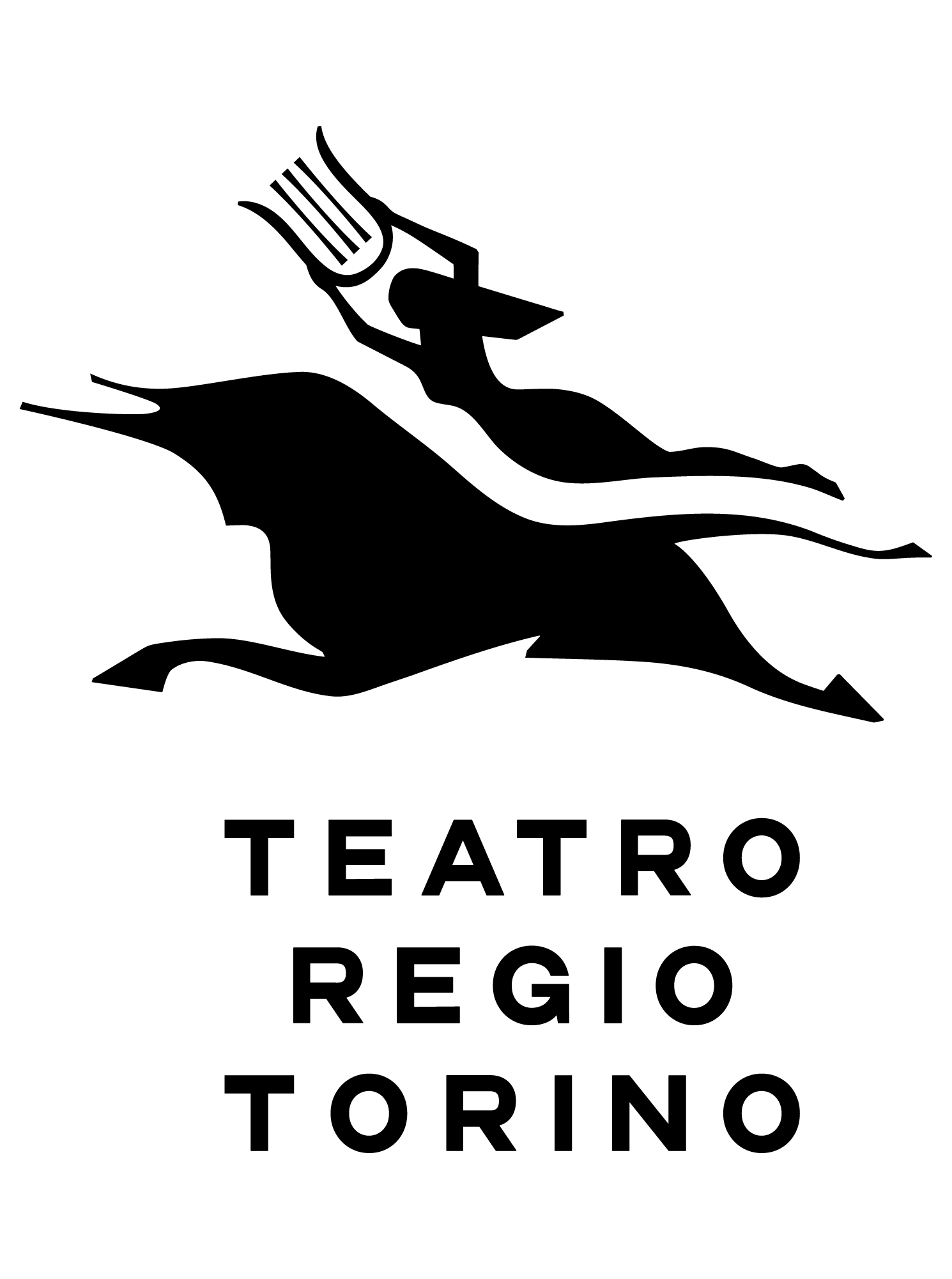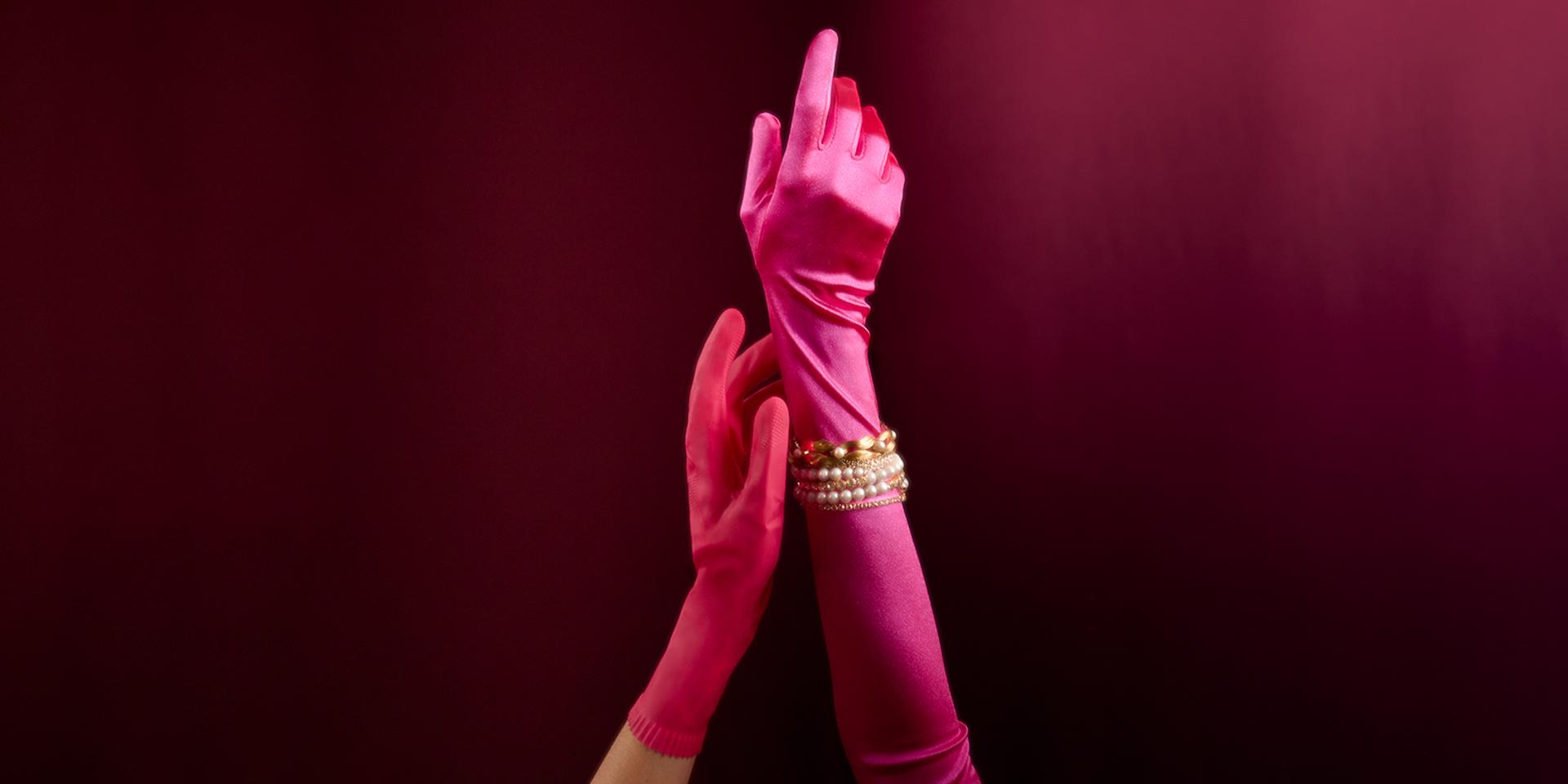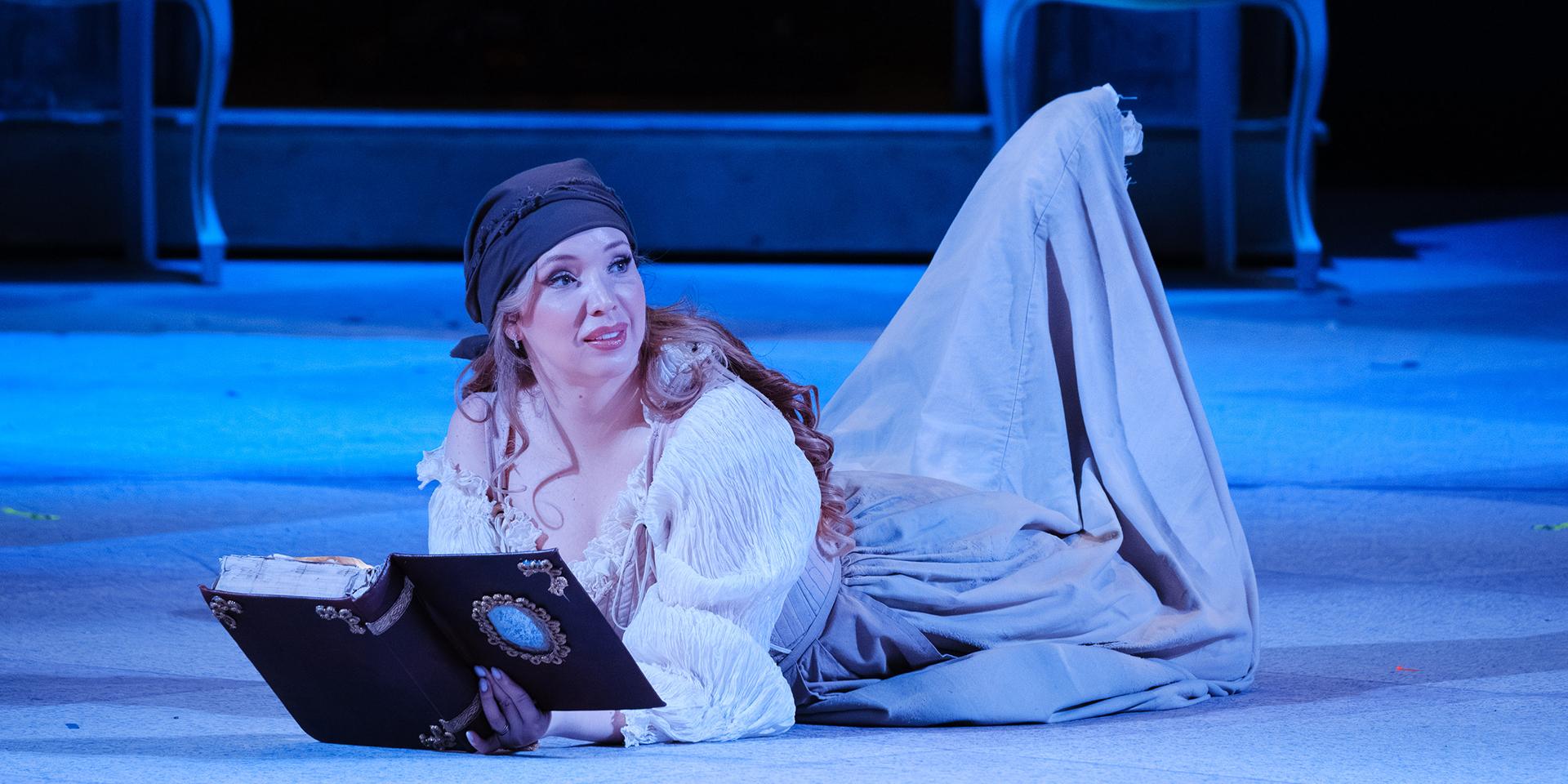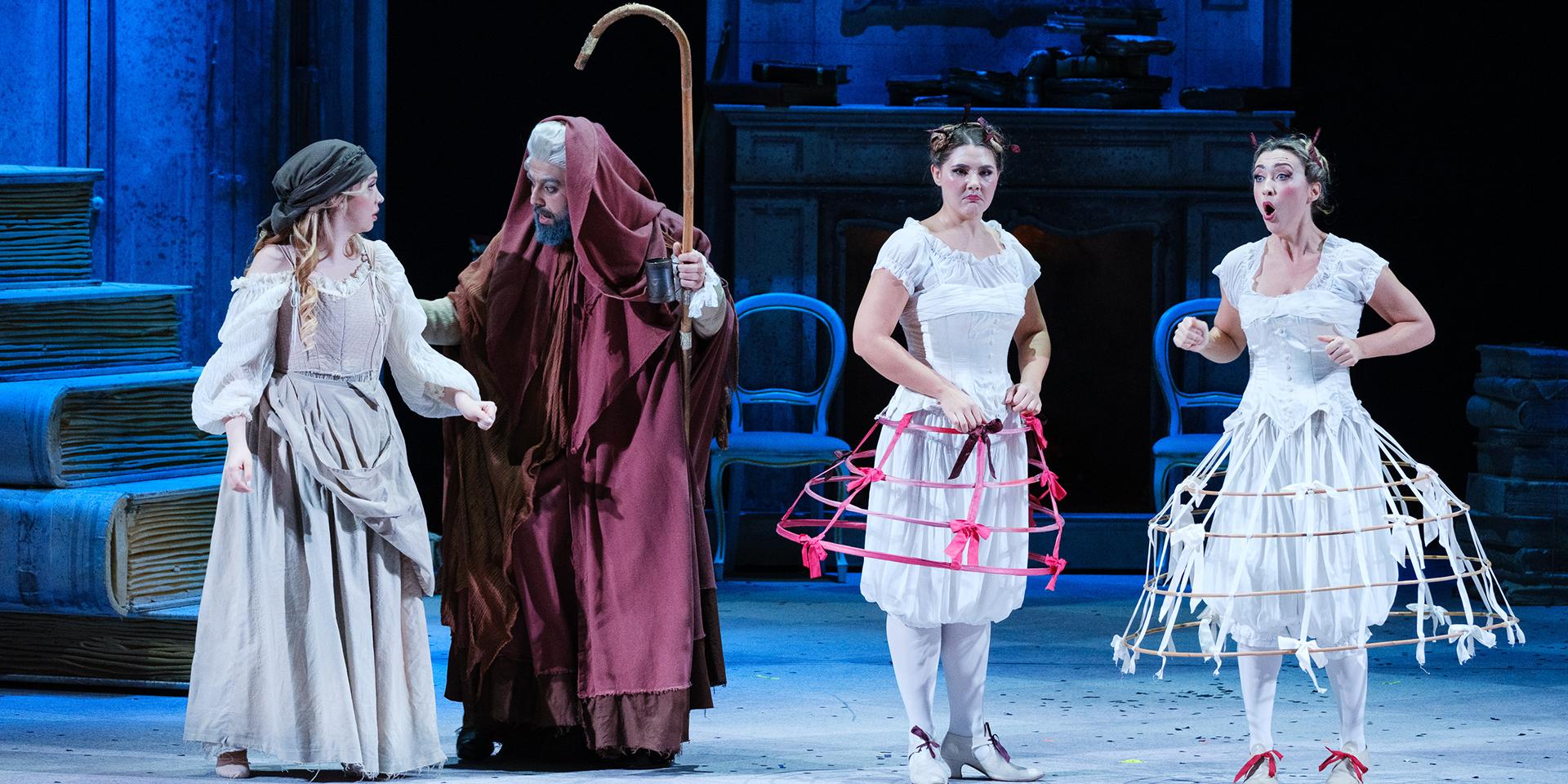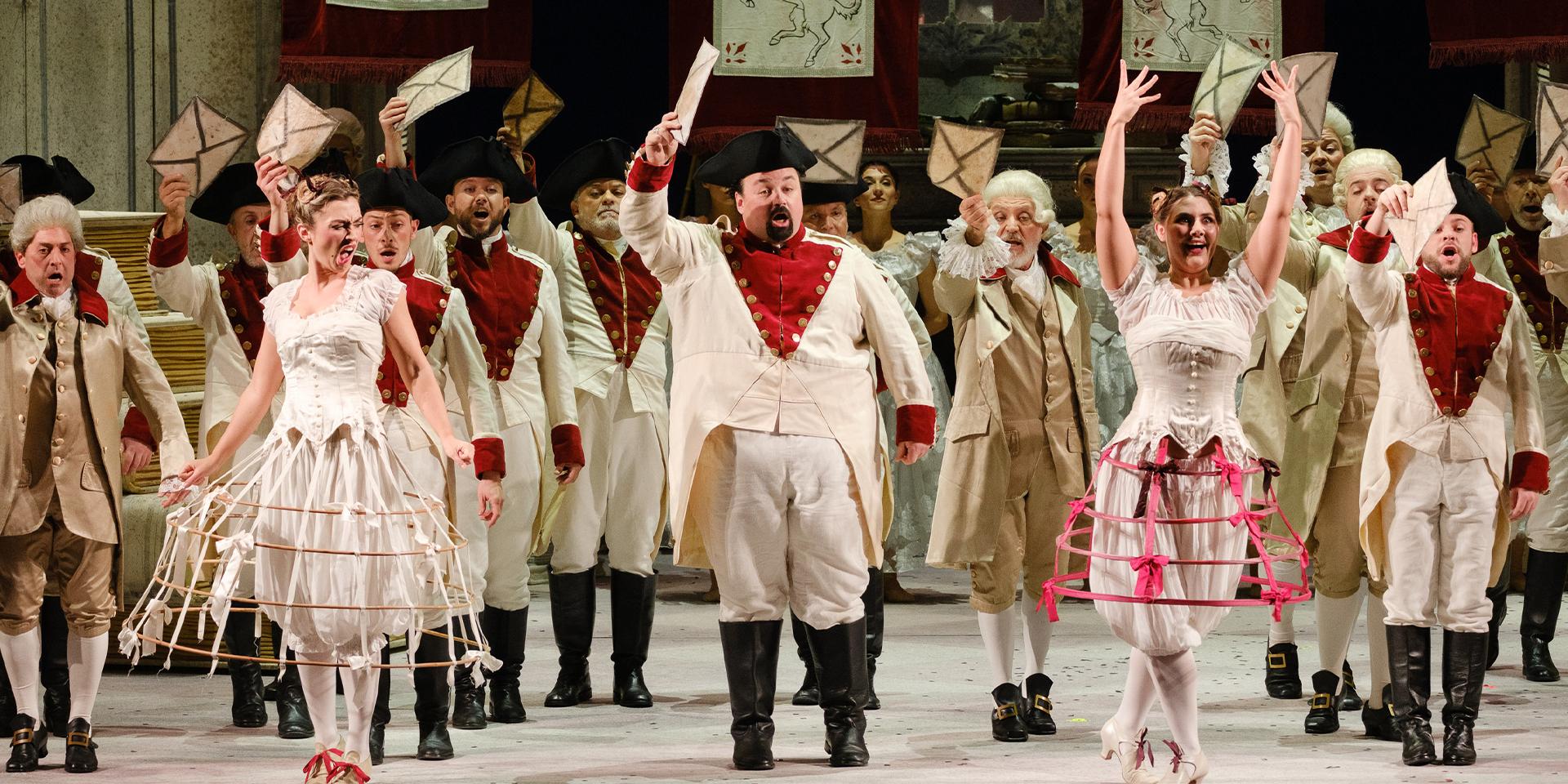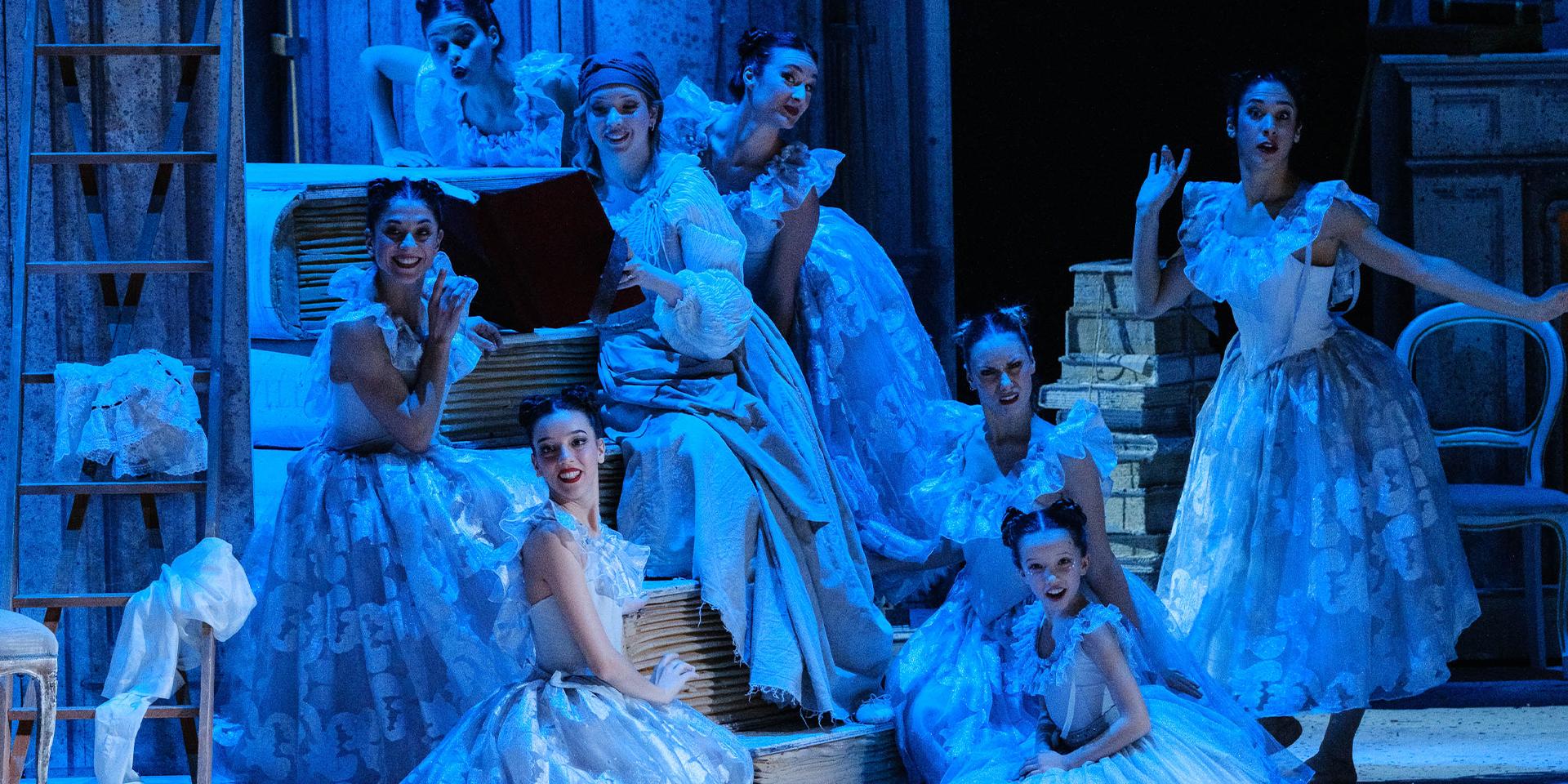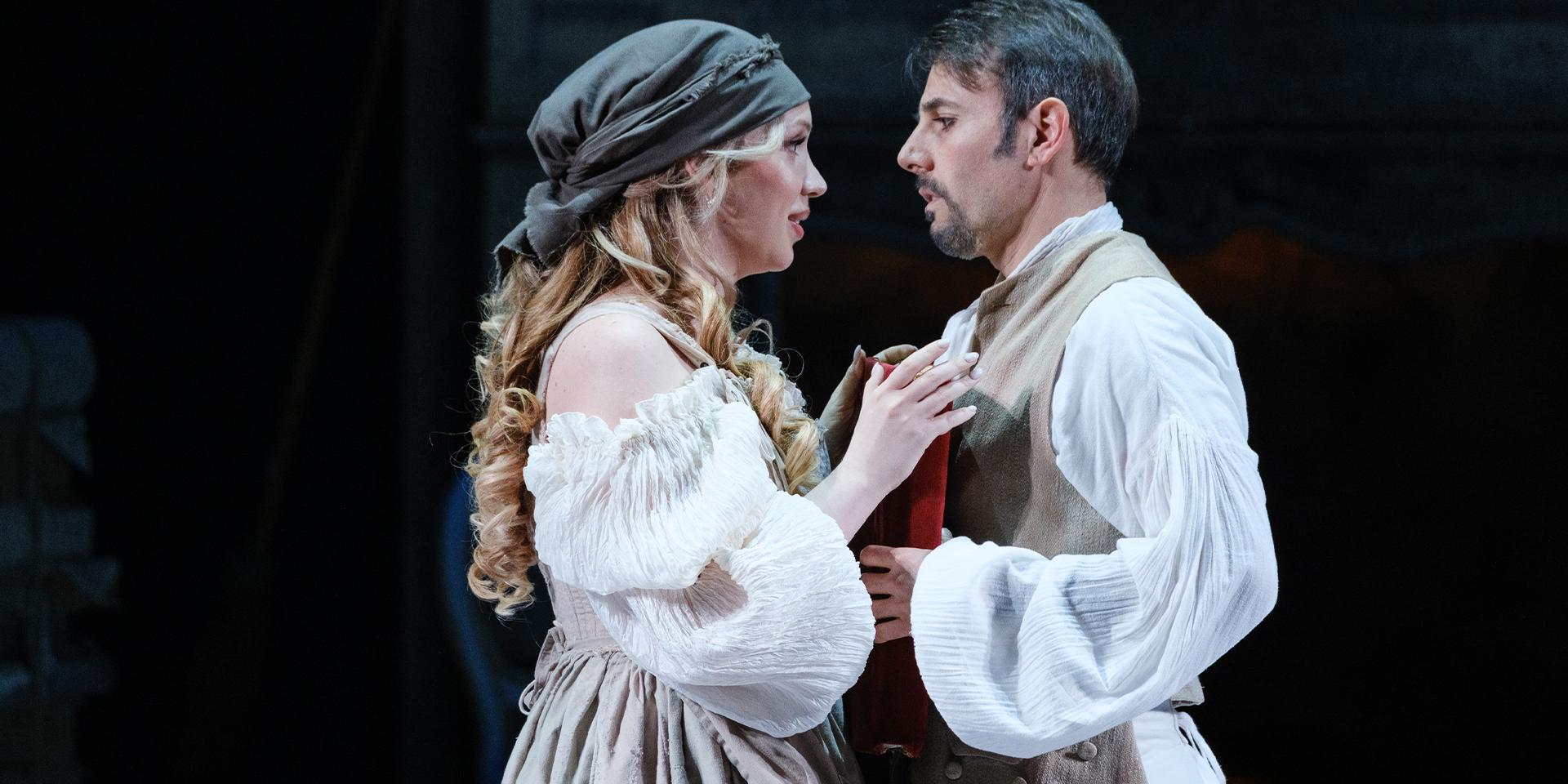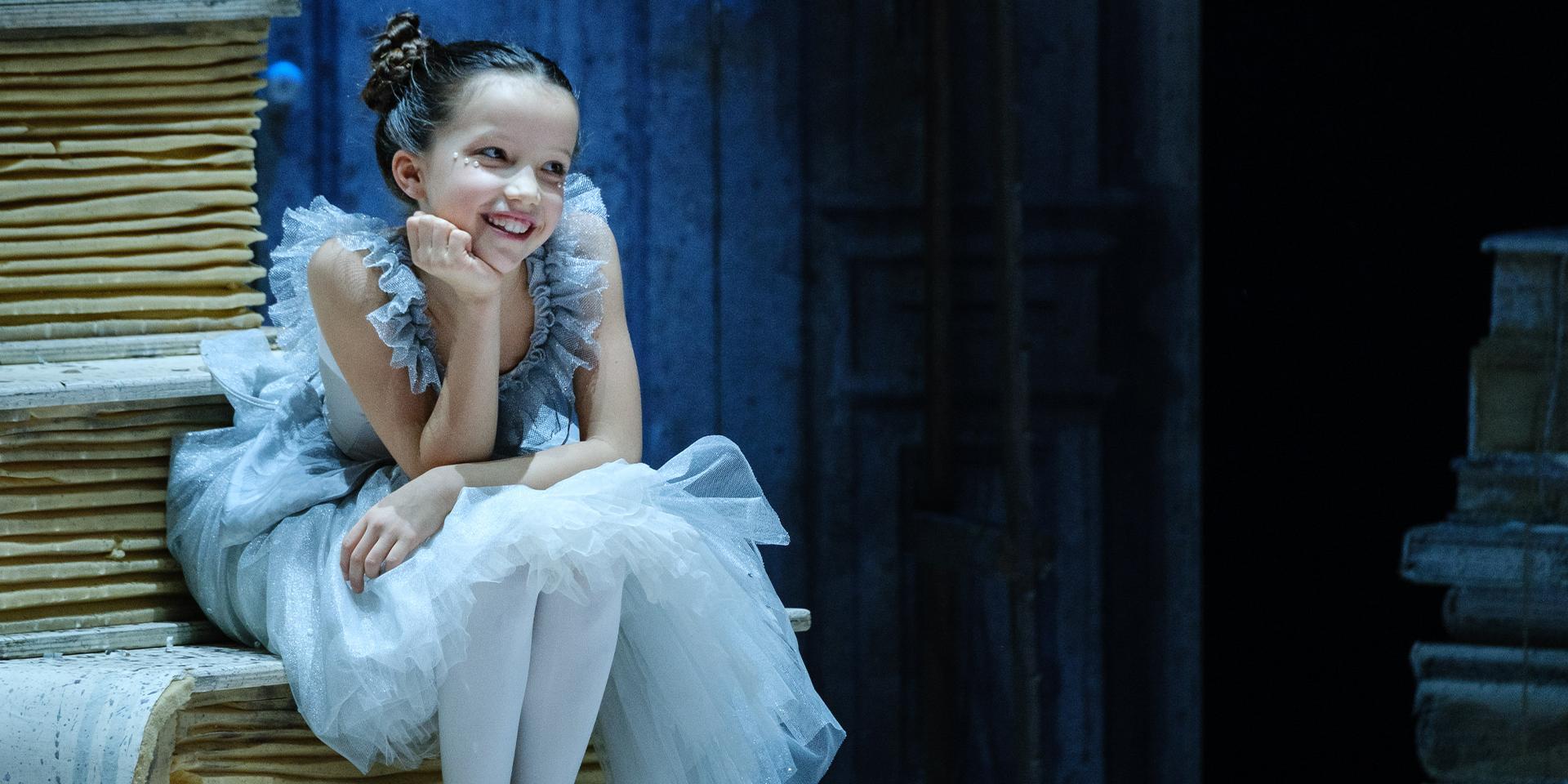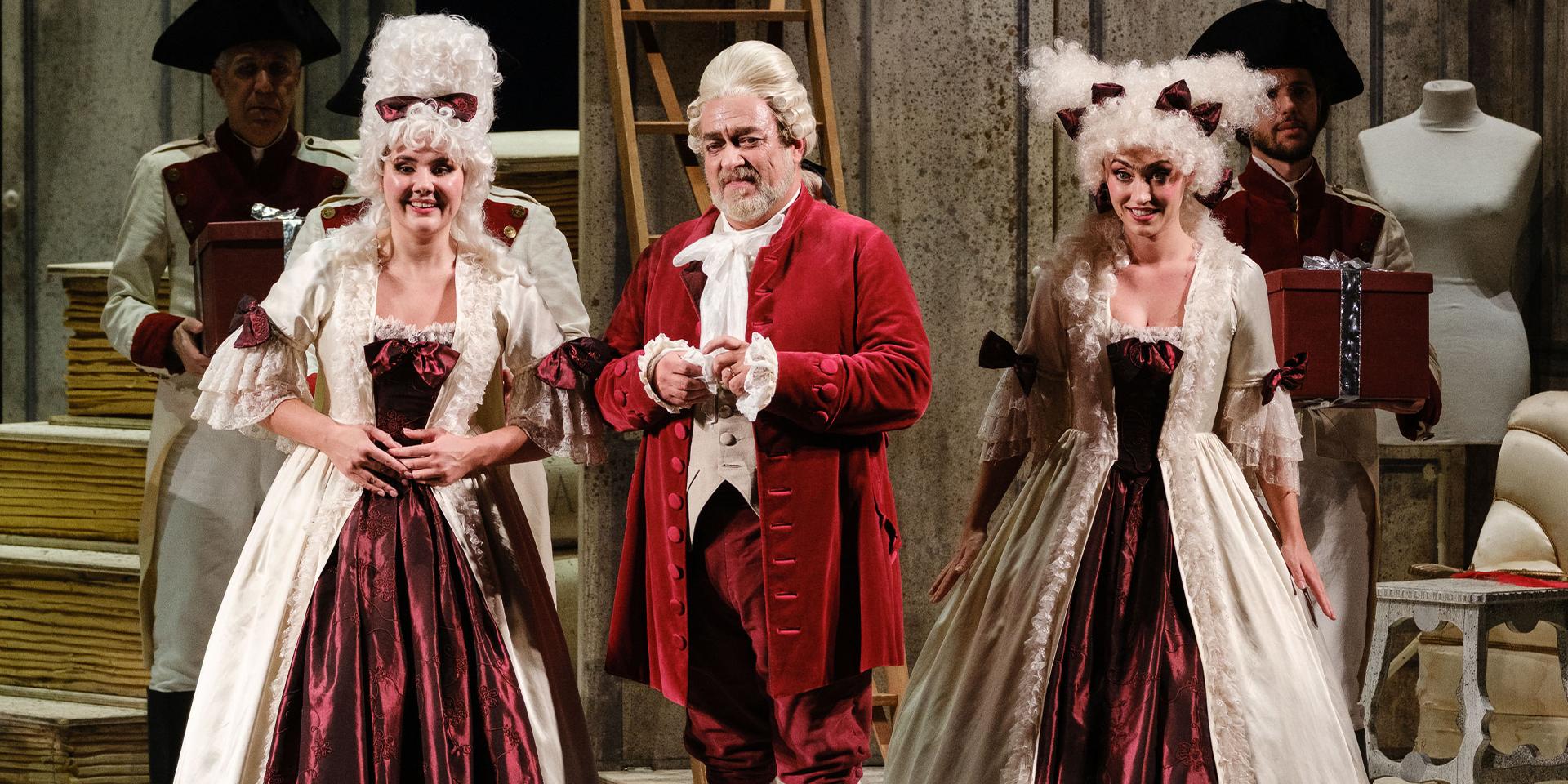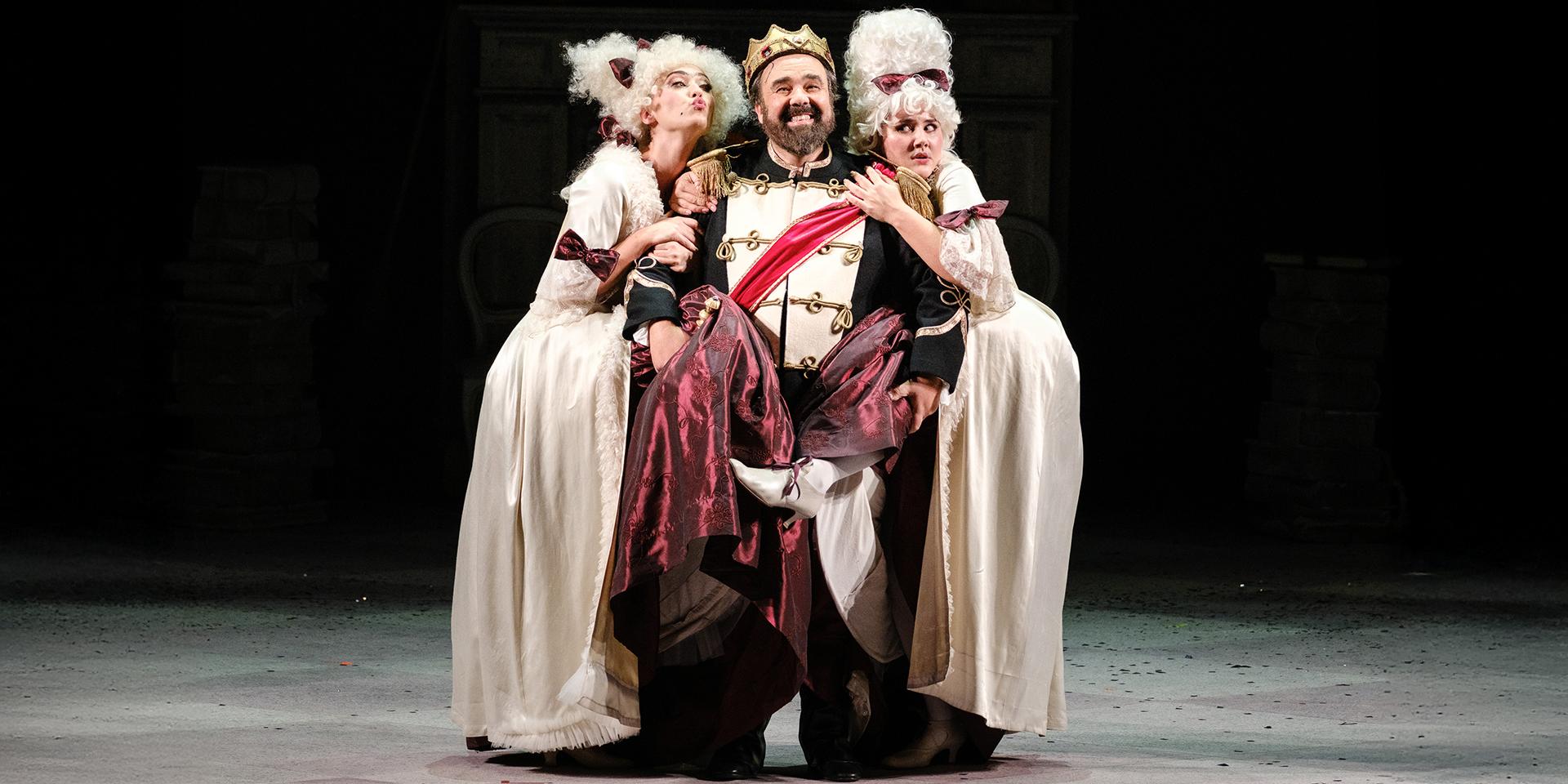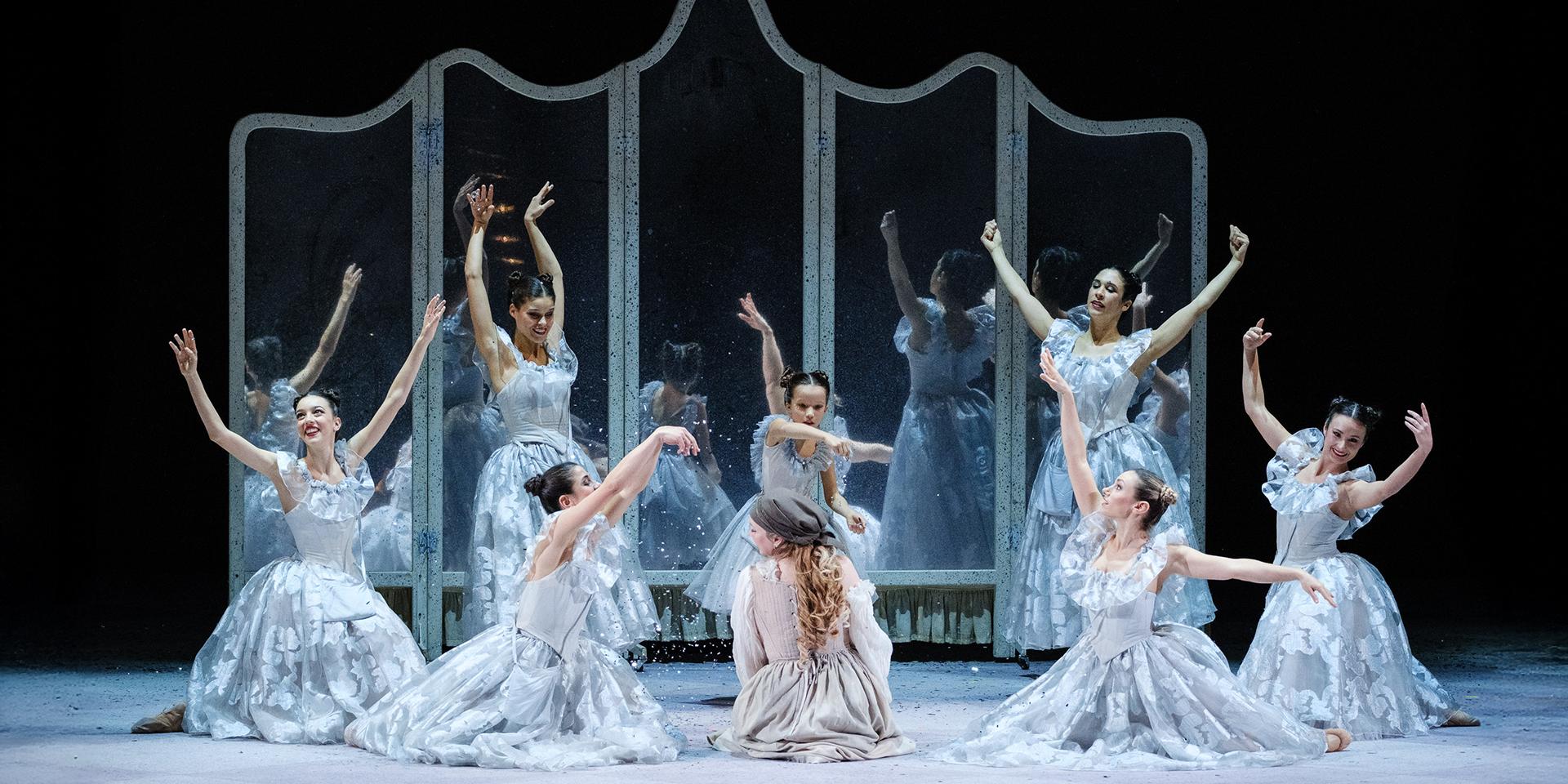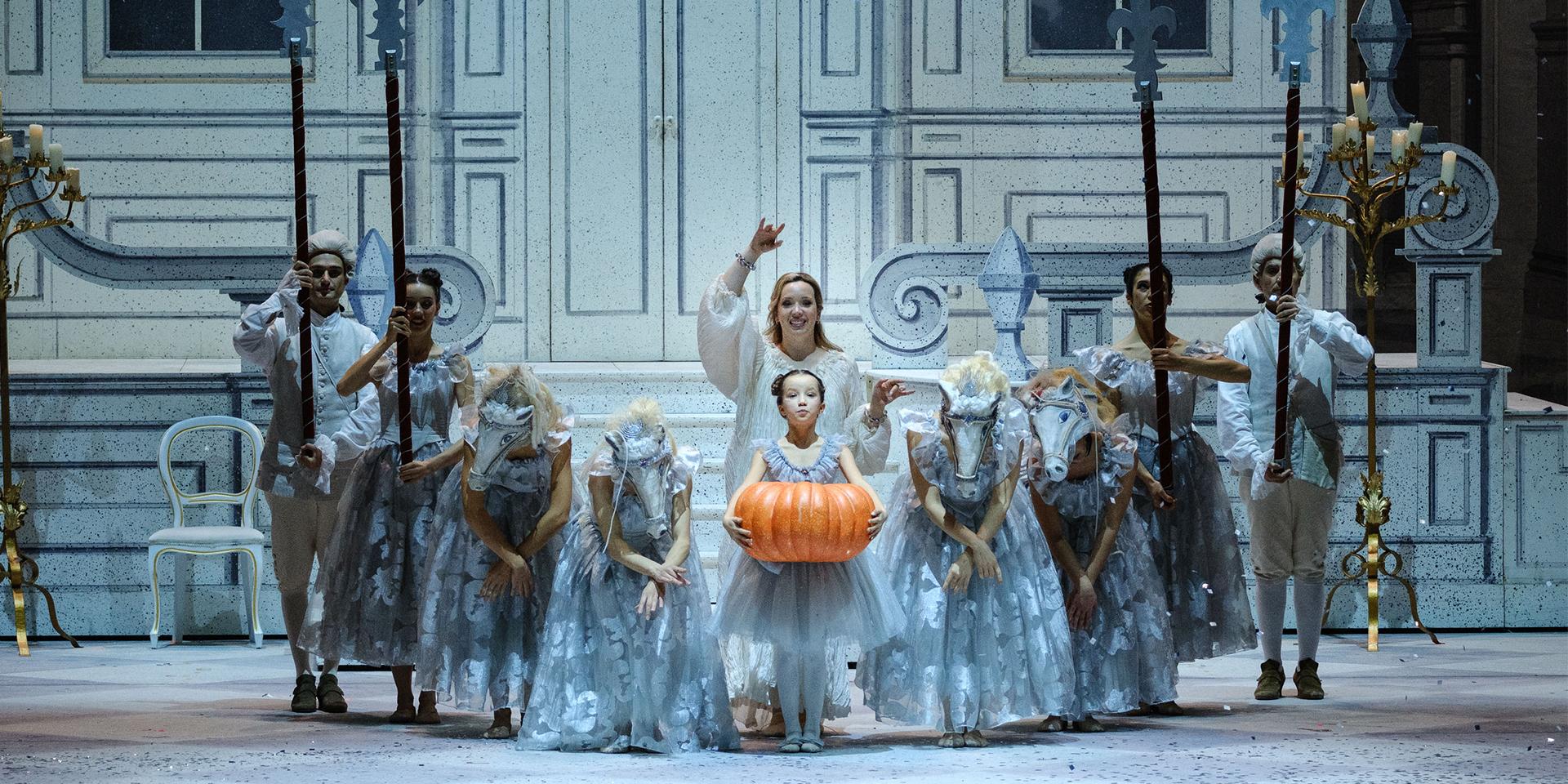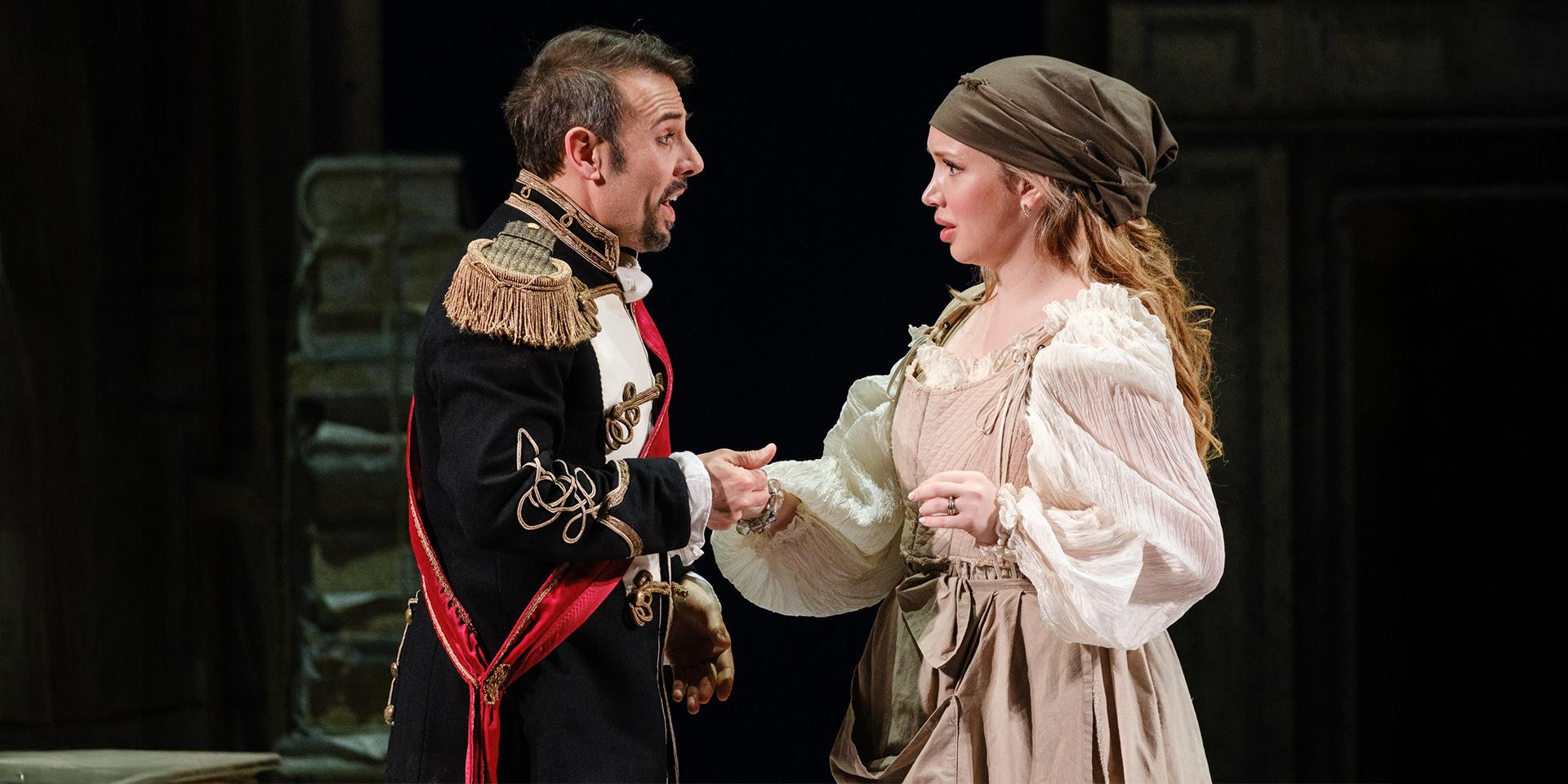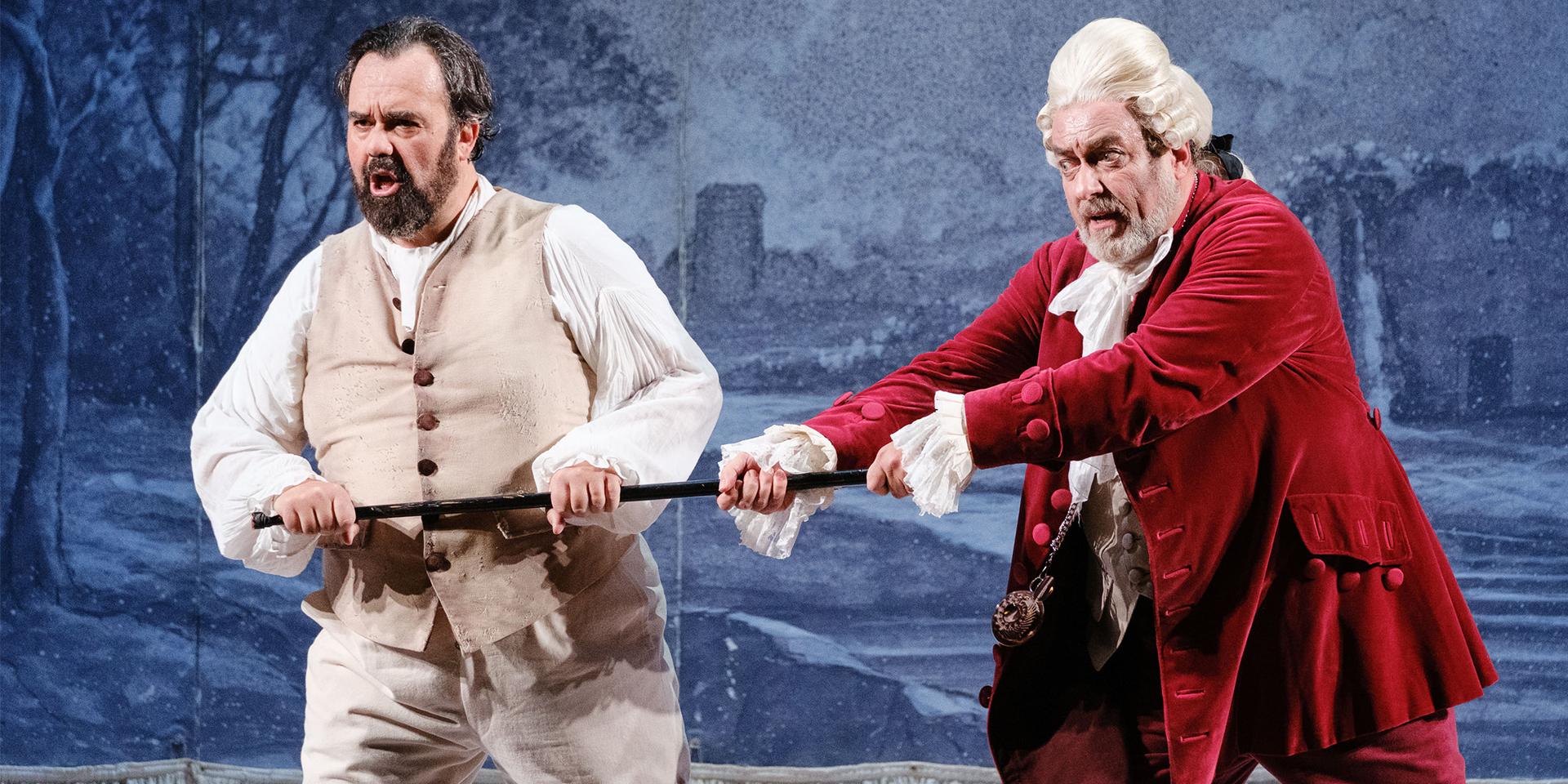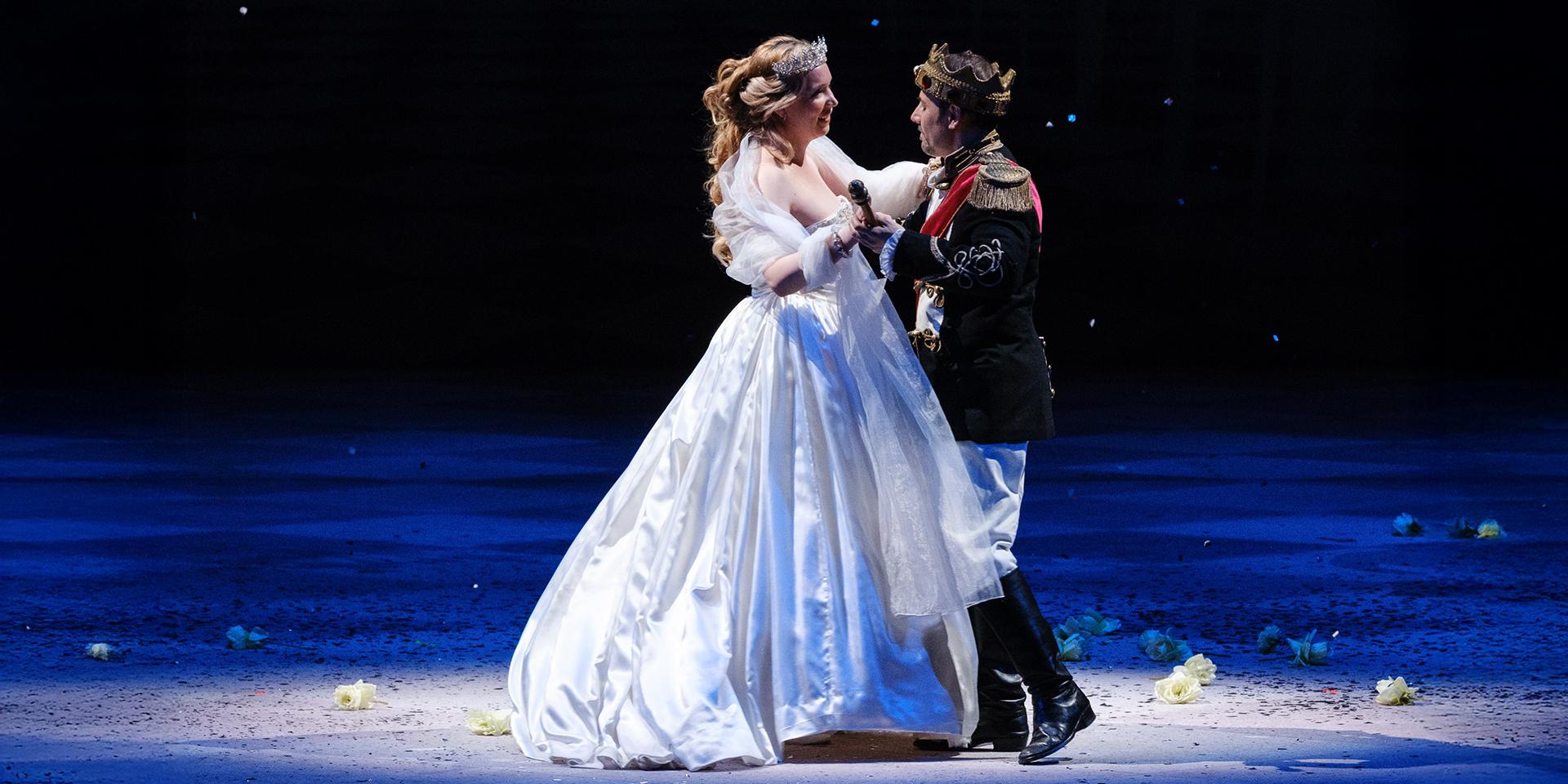La Cenerentola | Gioachino Rossini
With La Cenerentola, ossia La bontà in trionfo, which premiered in 1817, a year after the debut of Il barbiere di Siviglia, Rossini added new sentimental shades to his comic flair that had already brought him success throughout Europe. The fairy tale by Perrault, adapted by Jacopo Ferretti with some variations (most notably the stepmother becoming a stepfather and the glass slipper replaced by a bracelet), gave him the opportunity to tint his crescendos with melancholic nuances and to open up his frantic rhythms to touches of poetry. The result is an opera in which the main characters, Cinderella and Prince Don Ramiro, sing of their feelings with all the fragility of youth, while the antagonists, the stepfather Don Magnifico and the stepsisters, provide a flavorful and grotesque counterpoint, with humor rooted in Neapolitan tradition, yet mindful of the European origins of the Cinderella tale in the land of Basile.
For this ever-engaging opera, the direction is entrusted to Manu Lalli, already acclaimed at the Maggio Musicale Fiorentino in 2024, and the orchestra will be conducted by Antonino Fogliani, one of the most authoritative batons in the bel canto repertoire today. Cinderella will be sung by coloratura soprano Vasilisa Beržanskaya, known for her incredible vocal range. Joining her on stage will be Nico Darmanin, Roberto De Candia, and Carlo Lepore—all guarantees of a musically memorable production.
Lecture-Concert: Wednesday 14 January at 6 pm - Piccolo Regio Puccini
Dramma giocoso in two acts
Performance on 21/1: due to indisposition, Antoinette Dennefeld is replaced by Vasilisa Berzhanskaya
Characters and cast

Vasilisa Berzhanskaya

Antoinette Dennefeld

Nico Darmanin

Pablo Martínez

Roberto de Candia

Vincenzo Nizzardo

Carlo Lepore

Giulio Mastrototaro

Maharram Huseynov
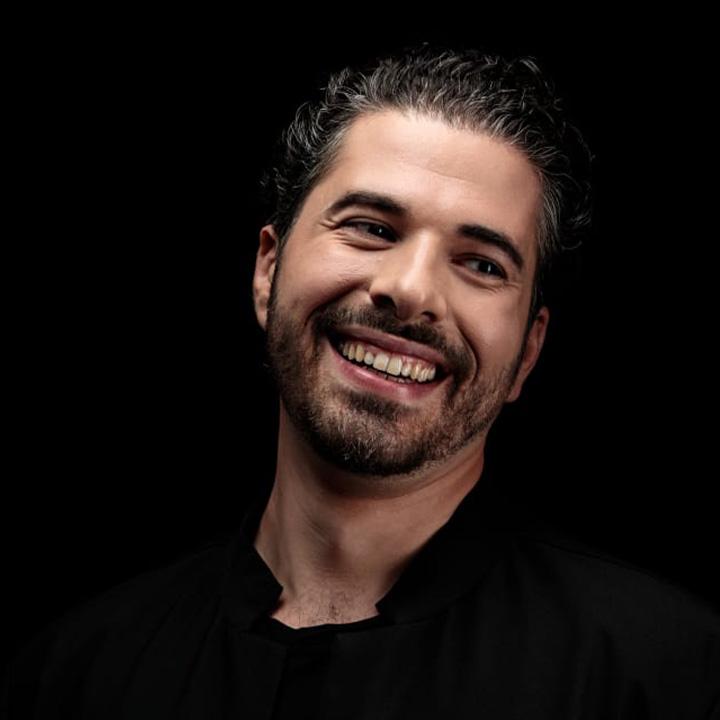
Davide Giangregorio
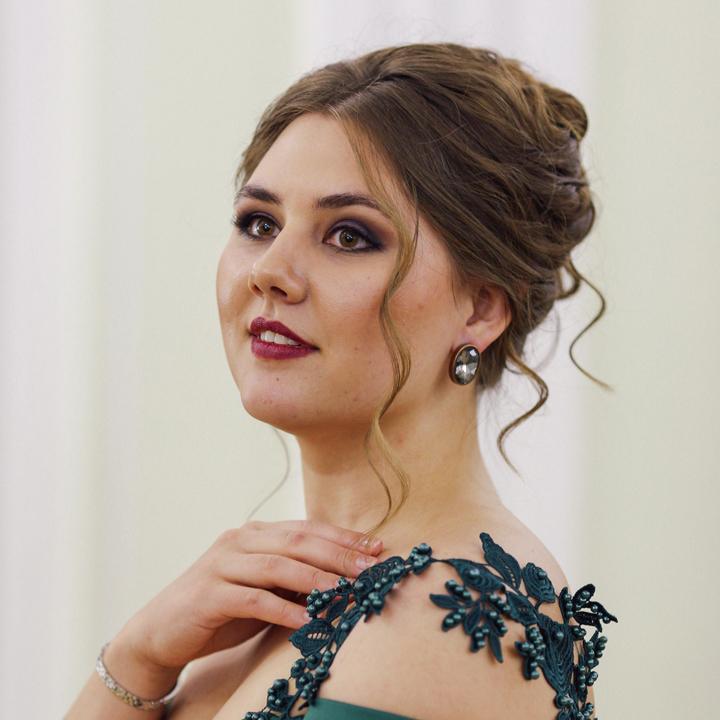
Albina Tonkikh (Regio Ensemble)

Claudia Urru

Martina Myskohlid (Regio Ensemble)
Performances
Anteprima Giovani
Biglietti in vendita dal 3 gennaio 2026 alle ore 11
Synopsis
atto
Angelina is the stepdaughter of Baron Don Magnifico. Forced to do the humblest chores, she is confined to the kitchen by the hearth, earning her the nickname Cenerentola (Cinderella). As she often does, one day she lets herself drift into daydreams and is scolded by her wicked stepsisters, Clorinda and Tisbe. But someone knocks at the door: it is Alidoro, tutor to Prince Don Ramiro, who has been tasked with finding a worthy bride for the prince. Disguised as a beggar, Alidoro is treated harshly by Clorinda and Tisbe, but is kindly helped by Cinderella.
Shortly after, a group of knights arrives to announce a visit from the prince, who will invite the baron and his daughters to a ball where he will choose his bride. Excited, the stepsisters rush off to prepare. Don Magnifico appears, grumpy for having been awoken by the commotion, but his mood changes quickly when he learns of the prince's arrival. Everyone withdraws.
Don Ramiro enters, also in disguise—as a valet—so he can observe the baron’s daughters freely. He meets Cinderella and is immediately drawn to her gentle manner. Then Dandini, the prince’s servant, makes his grand entrance pretending to be the prince, and is instantly smothered with attention by Clorinda and Tisbe. Cinderella pleads with her stepfather to let her attend the ball but is rudely refused. As the others leave for the ball, she retreats to her room.
Moved by her plight, Alidoro comforts her and decides to take her to the ball nonetheless. At the prince’s palace, the party is in full swing. A mysterious and elegantly dressed veiled lady arrives—her resemblance to Cinderella astonishes everyone. The prince is immediately captivated by her.
atto
The appearance of the mysterious lady has cast the other suitors into despair. Clorinda and Tisbe, too, are worried—but Don Magnifico remains confident that fate will favor his family and that one of his daughters will be chosen. Meanwhile, the veiled lady confides in Dandini—whom she still believes to be the prince—that she is in love not with him, but with his valet. Don Ramiro, who has been secretly listening, steps forward and proposes marriage. However, the young woman urges him to discover her true identity first; only then, if he still desires her, will she accept. Before leaving the palace, she gives him a bracelet, telling him that he will recognize her by its matching twin on her wrist.
Don Magnifico then confronts the fake prince, urging him to make his choice. But Dandini reveals that he is merely a servant, mocking the astonished baron’s outrage.
Meanwhile, Cinderella has returned to her place by the hearth. As a storm rages outside, Don Magnifico and the stepsisters return home in a foul mood. Alidoro cleverly arranges for the prince's carriage to "break down" near Don Magnifico’s residence, giving Don Ramiro an excuse to enter with his courtiers seeking help. Cinderella is stunned to discover that the valet is actually the prince, and Don Ramiro is overjoyed to see the matching bracelet on her wrist. Everyone is amazed. To the defeated stepsisters, Alidoro advises putting their trust in Cinderella’s kindness.
On the day of the wedding, in the throne room, Cinderella receives the homage of the Court. To Don Magnifico and her stepsisters, who now submit to her, she asks to be considered their daughter and sister, and she asks the prince to forgive them on her behalf: having suffered herself, she does not wish to make others suffer. All join in celebrating the kindness of the new princess.
